Why is Aldi So Cheap? If you’ve ever wondered how or why Aldi is so cheap, we have some answers!
If you’ve ever stepped foot in an Aldi, you’ll notice right away that it’s not your average grocery store.
Aldi stores are basic, there are no fancy bells and whistles– having shelves that are stocked with Aldi brands and just a handful of national brands is just one of the ways Aldi keeps their prices low.
The stores are smaller and the selection is limited, but what you get are amazingly low prices on grocery and pantry staples.…and well as some incredible Aldi Finds in the Aisle of Shame!
Aldi is very creative when it comes to cutting costs.
Contents
- 1 What is Aldi’s Business Model?
- 2 14 Reasons Aldi Is So Cheap
- 3 The Truth About Aldi Food
- 4 Who Makes the Aldi Brands?
- 5 Does Aldi Meat Come from China?
- 6 Is Aldi Food Safe?
- 7 Are Aldi Products Always the Cheapest?
- 8 Is Aldi Food Low Quality?
- 9 Why is Aldi Wine so Cheap?
- 10 Why are Aldi Eggs so Cheap?
- 11 What Should you Not Buy at Aldi?
- 12 Final Thoughts
What is Aldi’s Business Model?
Aldi’s business model is to be a price leader and offer customers grocery and other items for up to 50% less than what other retailers give. It achieves this by maintaining a thin selection of popular private label items and a no-frills shopping experience.
Aldi was established in Germany in 1946 by Albrecht to provide groceries during the second world war. Initially, it was called Albrecht Discount House and started operations in Essen, Germany, as a single store. The name “Aldi” is an abbreviation of Albrecht-Discount.
Cheapest Items You Can Find at Aldi
Examples of items that are so cheap at Aldi include;
- Milk
- Wine
- Eggs
- Chicken
- Fruits
- Vegetables
- Cheese
- Salmon
- Beer & wine.
Despite the low prices, the items sold at Aldi are of good quality. Their business model aims to cut unnecessary costs often passed on to customers, allowing Aldi to offer good quality items at lower prices than most retailers.
Items known to be expensive, for instance, organic foods, are pretty cheap at Aldi. Their free-range chicken is also way cheaper than other grocery stores. The store buys the chicken from regional farms to reduce the cost of preparing and transporting them to their stores.
14 Reasons Aldi Is So Cheap
Aldi can charge low prices for their products, thanks to a couple of initiatives and efforts at the core of their business model. They include —
1) Aldi Avoids National Brands
90% of the products in Aldi are private label brands. Here’s a list of the most common Aldi brands.

By not carrying brand names, Aldi can keep prices low by skipping the middleman.
Some might think of Aldi brands as generic, but the quality is consistent or better than the most common name brands, especially when it comes to canned and boxed goods, cereal, baking essentials, snacks, chocolate, and wine.
The national brand items that Aldi does carry tend to be overstocks that are purchased and sold at a discount.
2) Lesser Rent for Smaller Stores
Aldi stores are much smaller than your average grocery store, which means less overhead for rent and utilities. Since they only stock about 900 items compared to a typical supermarket’s 50,000 items, they manage to keep their outlets small.
3) Overstocked Name Brands
Aldi’s shelves are full of private label items, but you’ll also find overstocked name-brand items in some instances. This particularly applies to their rotating specialty items available at cut prices. Aldi purchases some of these overstocked items cheaply and sells them at very low prices.
4) Efficient Store Design and No Fancy Shelf Displays
Aldi grocery stores are designed to be easy to stock and are energy efficient, too.
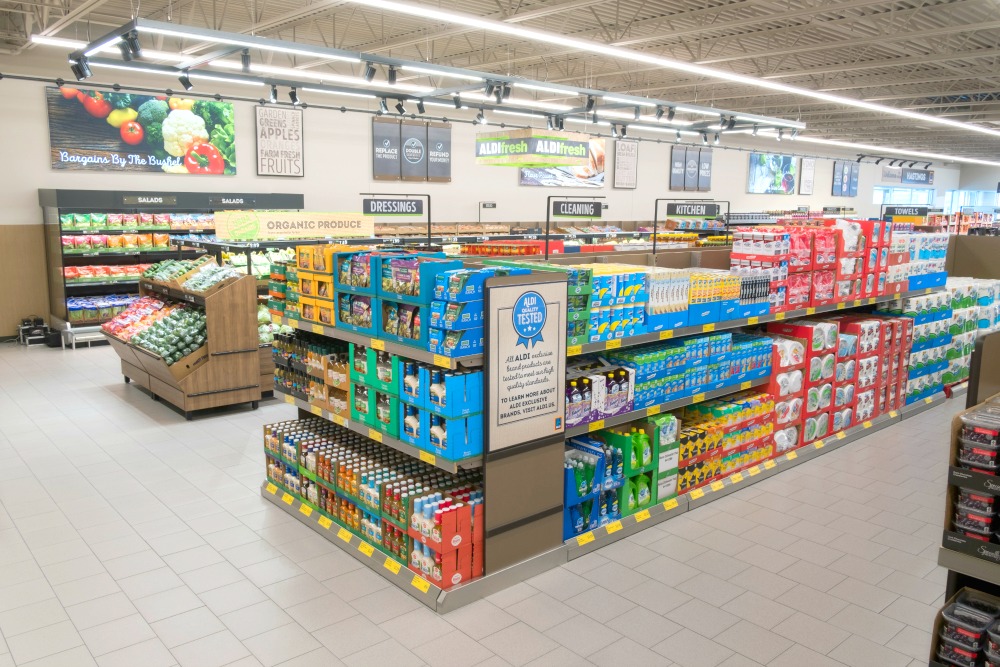
There aren’t any fancy displays that need to be put up or taken down, and most items stack neatly in their shipping boxes making it easy for employees to restock.
The boxes that Aldi products are shipped in are the same ones that are stocked on the shelves. Empty boxes can be used by customers to carry their groceries home in for free.
5) Fewer and More Efficient Workers
At any given time there are only 2-3 Aldi employees working in each store. Once again, this keeps overhead costs low.
Aldi employees are very efficient and even though there may only be one or two cashiers, they are surprisingly fast at checking customers out because they don’t bag your groceries.

One trick that Aldi has for keeping the checkout lines running smoothly is by putting multiple barcodes on products. If you look at an Aldi cereal box there is a barcode on every side!
6) Bring Your Own Bag or Pay for One
If you need a bag at Aldi, you’ll have to pay for it– which is another smart way they cut costs for customers.
Of course, you can bring your own reusable bags, hand-carry your items, or use an empty box from the shelves to avoid purchasing paper or plastic bags.
Once you’ve paid for your Aldi food, you bag your own groceries at the bagging counter.

7) Practically No Advertising
Have you ever seen an Aldi commercial? We haven’t! Aldi spends very little on advertising in the United States. They rely on their pricing model to attract more customers. Since they are known for this, their loyal customers mainly advertise for them through word of mouth.
8) Limited Hours
Another way Aldi keeps operational costs low is by opening later and closing earlier than other grocery chains.
Aldi hours vary by store, but most open at 9 AM and close by 8 or 9 PM.
9) Quarter for a Shopping Cart
Aldi doesn’t have to hire cart attendants because they have an Aldi shopping cart system where you rent a shopping cart for a quarter.
Once the cart is returned to the cart corral, you get your quarter back. This keeps carts out of the parking lot. Never be without a quarter by getting an Aldi quarter keeper!
10) Energy-efficient lighting
As part of the 2017 initiative to redesign stores, Aldi introduced energy-efficient lighting and even found ways to bring in more natural light. These small changes go a long way in saving Aldi’s energy costs. Besides, the remodeled stores featured energy-saving refrigeration.
Now you know why Aldi is so cheap! Their business model is designed for efficiency and savings are passed on to Aldi shoppers.
11) Lesser warehouse spaces because of limited stock
Aldi sells only 900 core products. They have less to store and exhibit because they don’t carry any big-name brands. Their products are popular and sell out fast, so not much remains lying around in their warehouses.
As a result, they save on warehouse costs.
12) Pre-packaged items
Some of the popular Aldi items are already pre-packaged and ready for collection by customers. Examples are milk and some produce that arrive at the store packaged in different units. This reduces the effort required to pack them and thus the costs and time needed to do it.
13) Bare shopping (not many decorations and music)
Aldi stores are very functional, and everything aims to help customers get what they want as quickly as possible and move. The bare shopping experience is cheap to set up since no money is spent on music and fancy decorations.
14) Speedy cashiers
Aldi’s focus on its private-label items makes the checkout process simple. Items have multiple barcodes designed to help cashiers swipe them quickly. This kind of efficiency helps them operate speedily and avoid queues at checkout.
15) Bar codes
ALDI has an efficient checkout system that uses barcodes on its products instead of scanners. They roll over the barcodes over the scanner. It means no one has to stop and scan each item as it moves down the conveyor belt — a process that takes longer and requires more labor than scanning a barcode. This saves time, making it easy to handle many customers within a short time.
The Truth About Aldi Food
Aldi food retails at low prices, which has led to some myths about where they source the food. Read on to find out the truth about Aldi food—
Aldi food comes from regional farms, and there’s a high probability that what you buy at an Aldi store near you is sourced from your area. This is part of the plan to lower transport and storage costs, allowing Aldi to lower food prices.
Who Makes the Aldi Brands?
Aldi partners with several brands to make foods under its private label. This is why some Aldi private brand foods taste the same as third-party ones. A few examples include;
- Perrigo Nutritionals makes Aldi Baby Formula
- Olde York Potato Chips makes Aldi Potato Chips
- Little Salad Bar makes Aldi Bagged Salad Mixes
Does Aldi Meat Come from China?
Aldi meat doesn’t come from China, and all Aldi items sourced outside the country have a label indicating where they come from on the packaging.
Is Aldi Food Safe?
Yes, Aldi food is safe. They’ll never sell food past its “use by” or “best before” date. All Aldi items are thoroughly tested for quality before being offered to customers in stores.
Are Aldi Products Always the Cheapest?
No, Aldi products aren’t the cheapest, but among them. We cannot say that Aldi charges the cheapest items in the grocery market, but you’ll indeed find some of the lowest-priced things in their stores.
Is Aldi Food Low Quality?
No. Aldi’s food isn’t of low quality despite the low prices. The company employs multiple strategies to lower its food prices without compromising quality.
Why is Aldi Wine so Cheap?
Aldi can sell its wines so cheaply because it doesn’t deal with distributors, who can raise the cost of a bottle by as much as 35%. Instead, Aldi buys directly from vineyards.
Why are Aldi Eggs so Cheap?
Aldi’s eggs are cheap because they are stocked in their original shipping cartons instead of being placed on display racks. Besides, they’re sourced from regional farms and don’t incur transportation costs.
What Should you Not Buy at Aldi?
Aldi stocks limited items and won’t have a variety of specific ones, including toiletries, cleaning supplies, and personal hygiene products. You’re better off looking at other retailers for better deals on these items.
Final Thoughts
Some of the reasons that allow Aldi to price its products cheaply have been mentioned here. The company’s business model is all about reducing costs that are often passed onto customers, and this helps them charge low prices.
OTHER QUESTIONS ABOUT ALDI
- Is Aldi Delivery available?
- Aldi Stock – Can you buy stock in Aldi?
- Aldi Trader Joe’s – What’s the connection?
- Aldi Return Policy
- Does Aldi Take Credit Cards?
- What Time Does Aldi Close?
- Is there an Aldi Phone Number?
- Does Aldi Sell Alcohol?

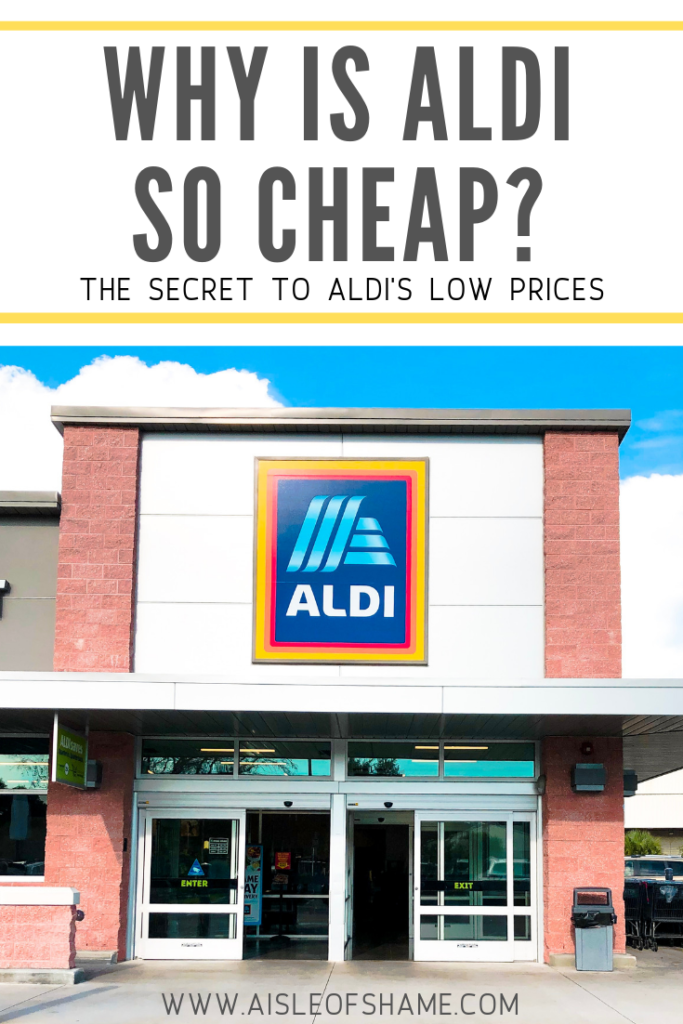
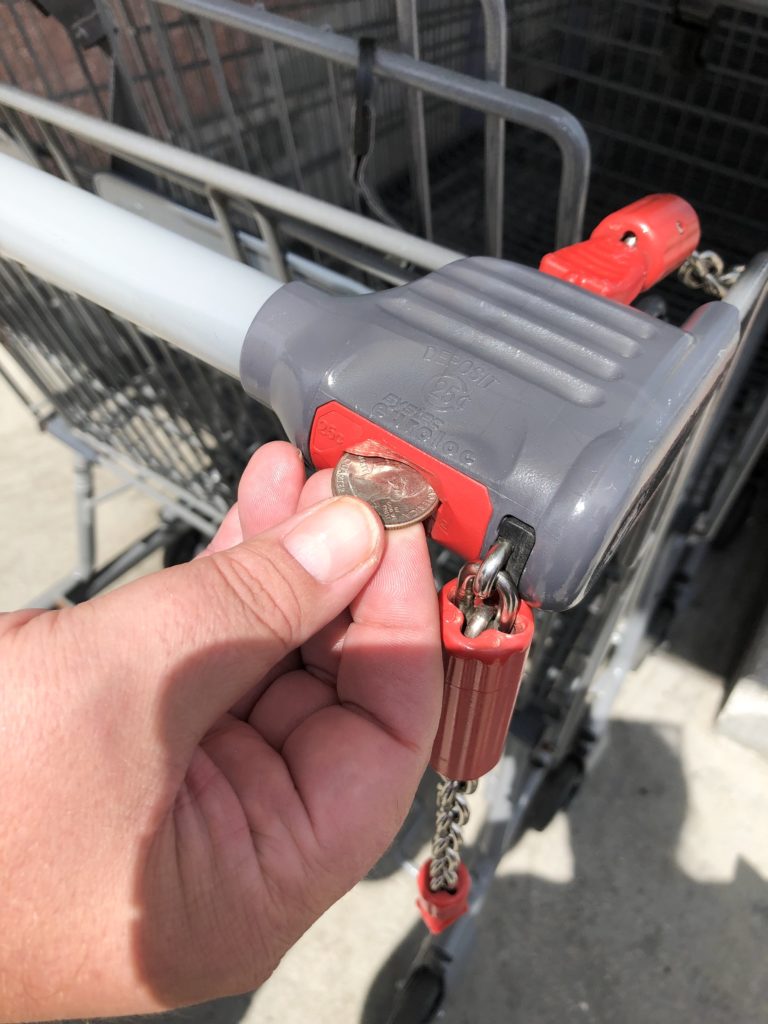
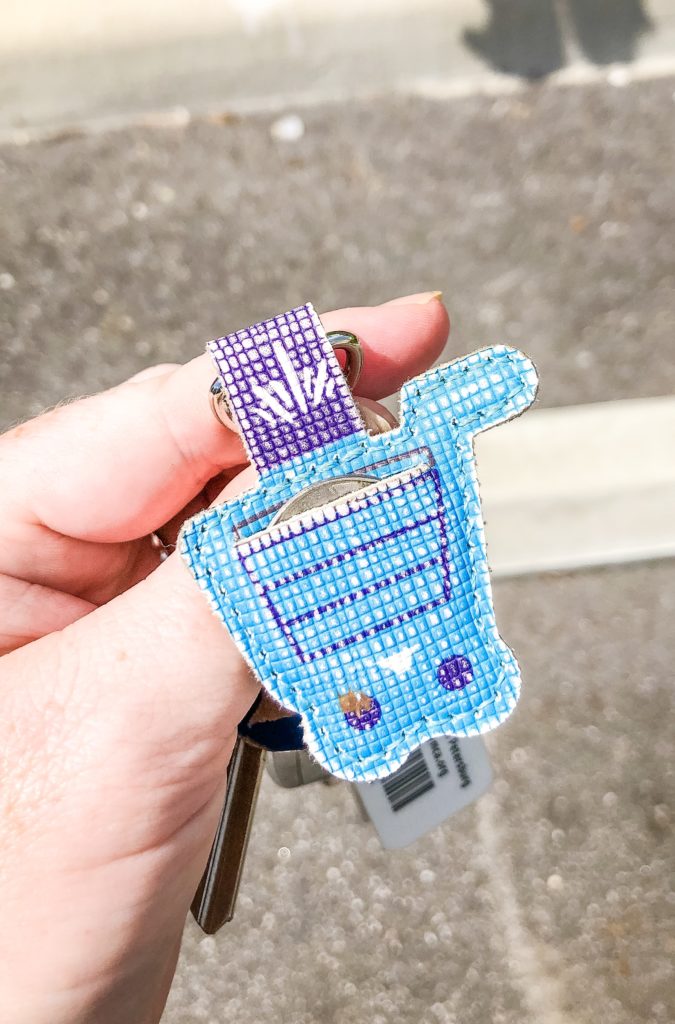

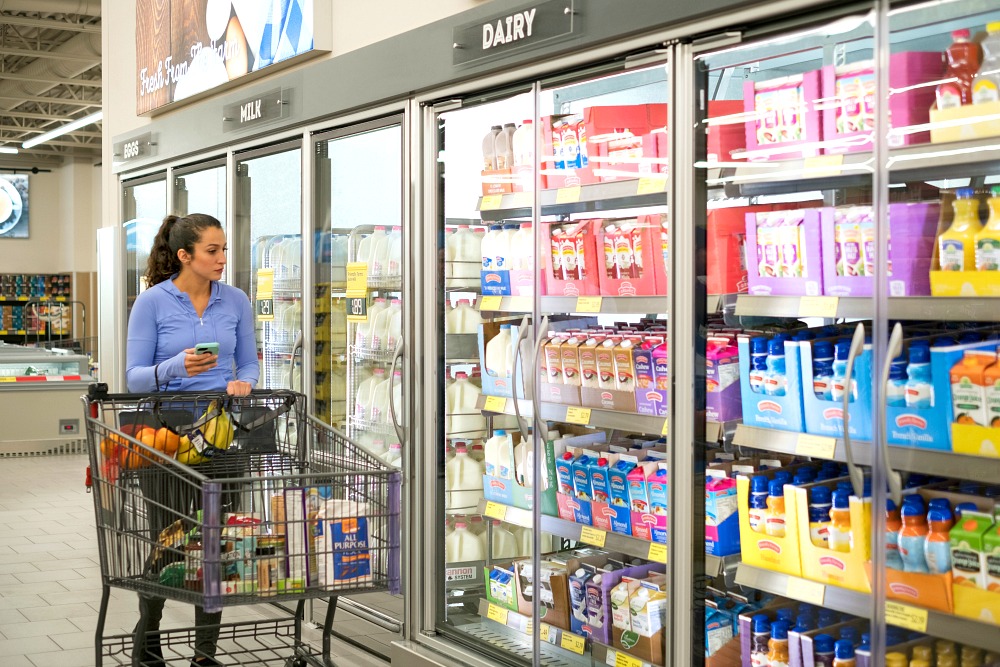
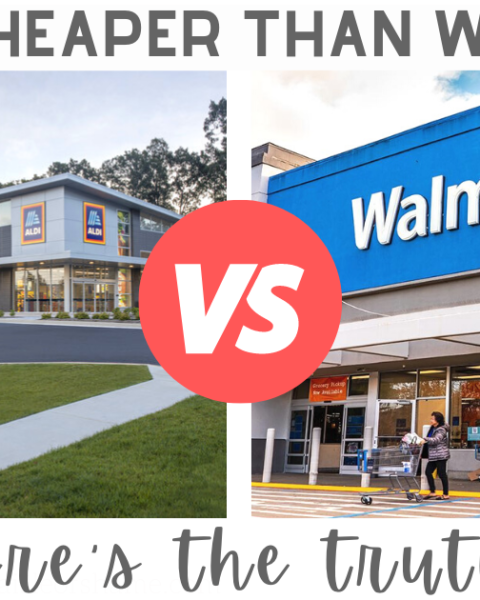
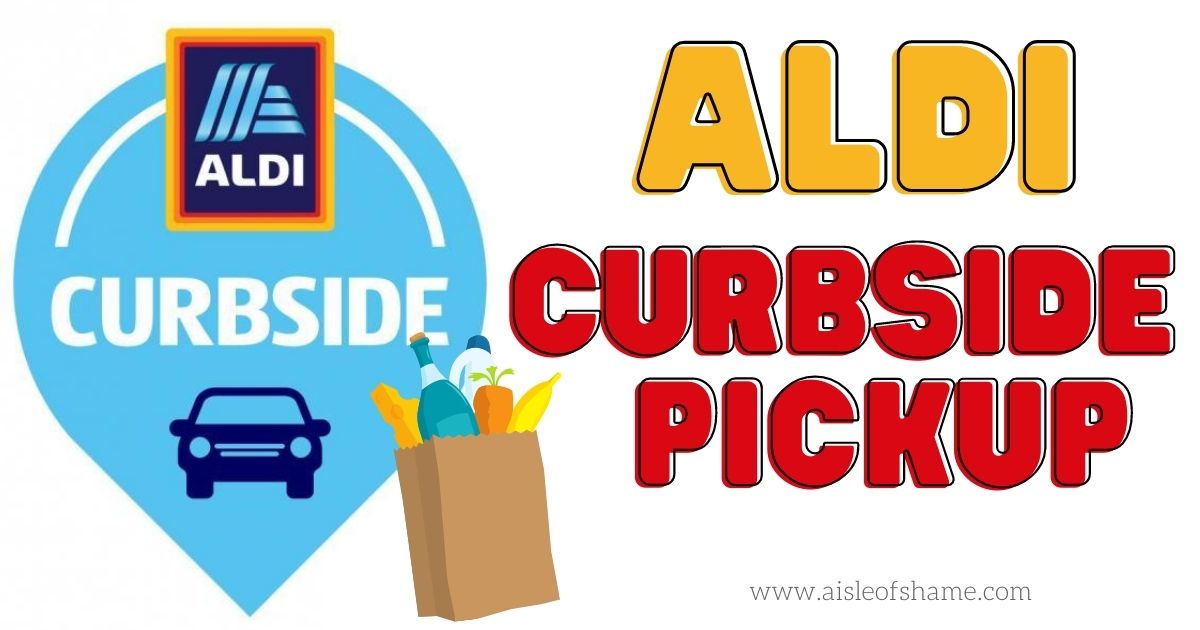


[…] That might sound extreme for a company with over 1900 stores in the U.S., but there’s a reason, and it all goes back to why Aldi is so cheap. […]
[…] Why is Aldi So Cheap? […]
[…] Also Read: Why is Aldi so Cheap […]
Let’s not beat around the bush here: Aldis is cheap because most of the food they sell is cr@p. I don’t know about every chain but the one near me, most of the produce was either sad looking or scarce. What didn’t look sad was usually overpriced. Many of their prepackaged “foods” are your typical, loaded with preservatives, overly processed fare. Occasionally there’s something decent or good at a reasonable price but you have to hunt for it. Overall my experience was poor to say the least. It’s barely a grocery store, honestly. The last time I went was right after work when the grocery stores are usually packed and it was practically empty.
One caveat: yes they offer some organic produce and other organic products but do their prices/quality compete with anywhere else? Not really, no.
Milk is not processed and I paid $1.30 less a gallon last week at Aldi… $2.70 rather than $4.00. Canned vegetables, beans, cream cheese, regular cheese, and yogurt were all at least 30% less expensive. Strawberries and mangos were half the price of Walmart. Their whole grain bread was $1.80. The name brand equivalent is at least $2 more. With inflation being a real thing, we all are trying to stretch our hard earned money where we can.
I appreciate my local Aldis.
We have recently discovered Aldi and at first I was like “ho-hum” but I’m used to over done gigantic grocery stores. But if you take your time and look closely, there are amazing products in that store! We often follow a keto diet and they have so many legit products for half the price! I have been impressed with all the items we purchase. They have Trader Joe’s knock offs and tons of gluten free and organic options as well. It’s products are for discerning buyers not low income buyers!